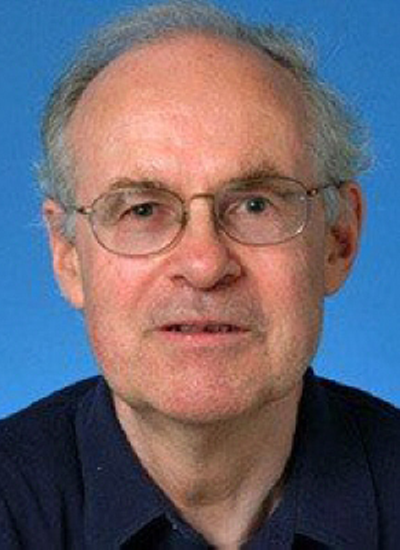In memoriam: Gerhard Meissner
Gerhard Meissner, a professor at the University of North Carolina at Chapel Hill and a member of the American Society for Biochemistry and Molecular Biology for more than 40 years, died May 1. He was 84.

Born in Wilhelmshaven, Germany, on Jan. 26, 1937, Meissner received B.S. and M.S. degrees from the Free University of Berlin, then went on to earn a Ph.D. in physical chemistry from the Technical University of Berlin in 1965. He joined the UNC faculty in 1974 and was appointed professor of biochemistry and biophysics in the UNC School of Medicine in 1986.
Meissner’s major research interests included determining the structure and function of ion channels and calcium signaling in cardiac and skeletal muscle. His lab used mutagenesis, Ca2+ imaging and single-channel measurements to determine the molecular mechanisms underlying release channel/ryanodine receptor, or RyR1, function, with the goal of understanding the mechanisms of RyR1 channel ion conductance and selectivity, and gating by its multiple ligands, and how these processes are altered by mutations linked to muscle diseases such as central core disease and malignant hyperthermia.
Meissner was a Gosney fellow and Volkswagenstiftung fellow at the California Institute of Technology, a fellow of the Biophysical Society and an established investigator of the American Heart Association. He received continuous funding from the National Institutes of Health that included two NIH MERIT Awards from 1990 to 2000 and 2010 to 2021.
He is survived by his wife, Elizabeth M. Wilson, and sons, Eric G. Meissner and Geoffrey W. Meissner.
Enjoy reading ASBMB Today?
Become a member to receive the print edition four times a year and the digital edition monthly.
Learn moreGet the latest from ASBMB Today
Enter your email address, and we’ll send you a weekly email with recent articles, interviews and more.
Latest in People
People highlights or most popular articles

Embrace your neurodivergence and flourish in college
This guide offers practical advice on setting yourself up for success — learn how to leverage campus resources, work with professors and embrace your strengths.

Survival tools for a neurodivergent brain in academia
Working in academia is hard, and being neurodivergent makes it harder. Here are a few tools that may help, from a Ph.D. student with ADHD.

Quieting the static: Building inclusive STEM classrooms
Christin Monroe, an assistant professor of chemistry at Landmark College, offers practical tips to help educators make their classrooms more accessible to neurodivergent scientists.

Hidden strengths of an autistic scientist
Navigating the world of scientific research as an autistic scientist comes with unique challenges —microaggressions, communication hurdles and the constant pressure to conform to social norms, postbaccalaureate student Taylor Stolberg writes.

Richard Silverman to speak at ASBMB 2025
Richard Silverman and Melissa Moore are the featured speakers at the ASBMB annual meeting to be held April 12-15 in Chicago.

Women’s History Month: Educating and inspiring generations
Through early classroom experiences, undergraduate education and advanced research training, women leaders are shaping a more inclusive and supportive scientific community.
